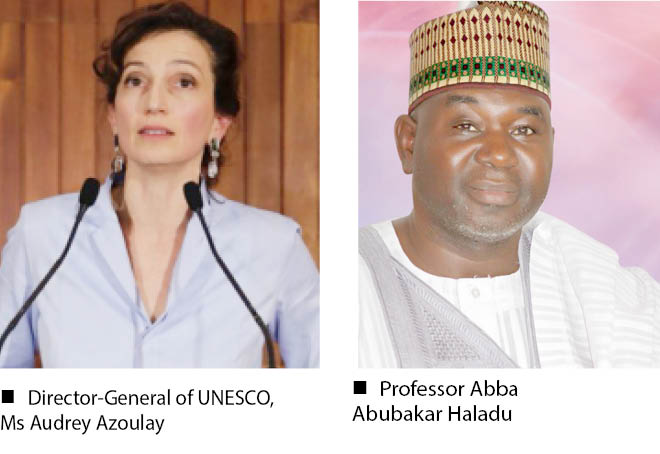Learning multiple languages can boost literacy
The growing demand for strong literacy skills among children and adults is said to have informed the declaration of the International Literacy Day by the UN. The Day was meant to raise awareness globally on the issues surrounding adult and child literacy and remind stakeholders and the public of the current status of adult literacy […]

The growing demand for strong literacy skills among children and adults is said to have informed the declaration of the International Literacy Day by the UN. The Day was meant to raise awareness globally on the issues surrounding adult and child literacy and remind stakeholders and the public of the current status of adult literacy and learning.
The theme for the 2019 ‘Literacy and Multilingualism’, stresses that embracing linguistic diversity in education and literacy development is central to addressing literacy challenges and achieving the Sustainable Development Goals.
The Ministry of Education in Abuja, on Friday, organised an event centered around multilingualism to celebrate the World Literacy Day where stakeholders agreed that though there was considerable achievement in dealing with early literacy difficulties and the menace of out-of-school adults, there should be more public awareness about adult literacy as well as the need for kids to learn a second language.
In his remarks, Minister of State for Education Chukwuemeka Nwajiuba said literacy was a basic human right and that successful literacy was founded on the inculcation of language skills. “Literacy, in turn, enhances and extends oral language abilities in its entire ramification throughout one’s lifetime,” he stated.
According to the minister, literacy enhances self-confidence, self-esteem and opens up new world of opportunities, in addition to boosting innovation, prosperity, tolerance, peace and security.
He said multilingual approaches to teaching and learning which referred to the use of two and more languages as medium of instruction were crucial elements for the acquisition of basic literacy and numeracy skills among youths and adults.
He stressed that in recognition of the fact that respect for languages of people belonging to different linguistic and cultural communities was essential to peaceful coexistence, UNESCO supported language as an essential component of inter-cultural education with the aim of encouraging understanding among diverse population groups.
The Executive Secretary, National Commission for Mass Literacy, Adult and Non-Formal Education, Professor Abba Abubakar Haladu, called for more support and commitment from governments, development partners and pressure groups in dealing with the literacy challenges facing the country.
He urged Nigerians to embrace the use of local languages in education and literacy to improve the future of everyone in the society.
In her message, Director-General of UNESCO, Ms Audrey Azoulay said the world was rich and diverse with about 7,000 living languages and that these languages were instruments for communication, engagement in lifelong learning, and participation in society and the world of work.
They are also closely linked with distinctive identities, cultures, worldviews and knowledge systems. Embracing linguistic diversity in education and literacy development was therefore a key part of developing inclusive societies that respect “diversity” and “difference”, upholding human dignity.
Also, the use of more than one language in daily life has become much more common with greater human mobility and the growing ubiquity of multimodal and instantaneous communication, she said.
Azoulay further stated that while the use of certain languages had expanded for cross-country and community dialogue, numerous minority and indigenous languages have been endangered adding “these trends have implications for literacy development.”
Again, the different aspects of policies and practice that interact for the promotion of literacy, building a solid literacy base in a mother language, before moving to a second or foreign language had multiple benefits, she also said.
“However, about 40% of the world’s population does not have access to education in a language they speak or understand. We need to change this by making policies and practice more linguistically and culturally relevant, enriching multilingual literate environments and exploring the potential of digital technology,” she stressed.
The DG explained that for more than seven decades, UNESCO had supported mother language-based, multilingual approaches to education as a means to enhance education quality and intercultural understandings.
